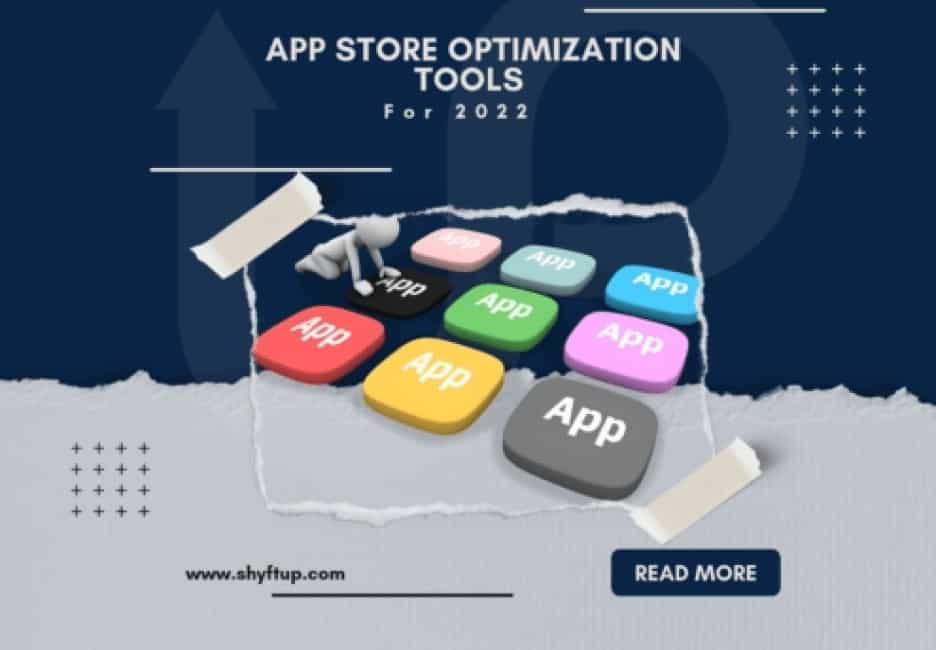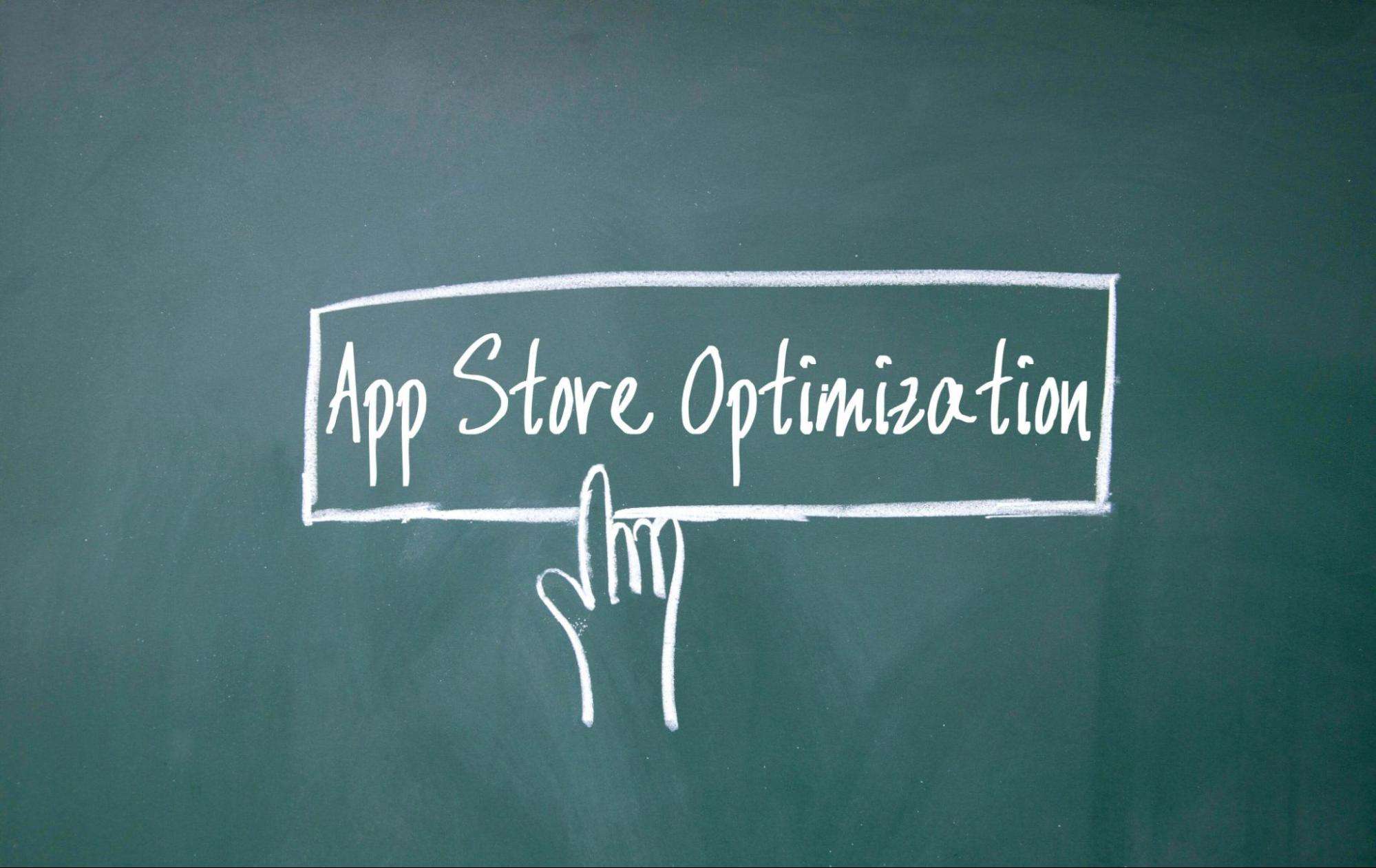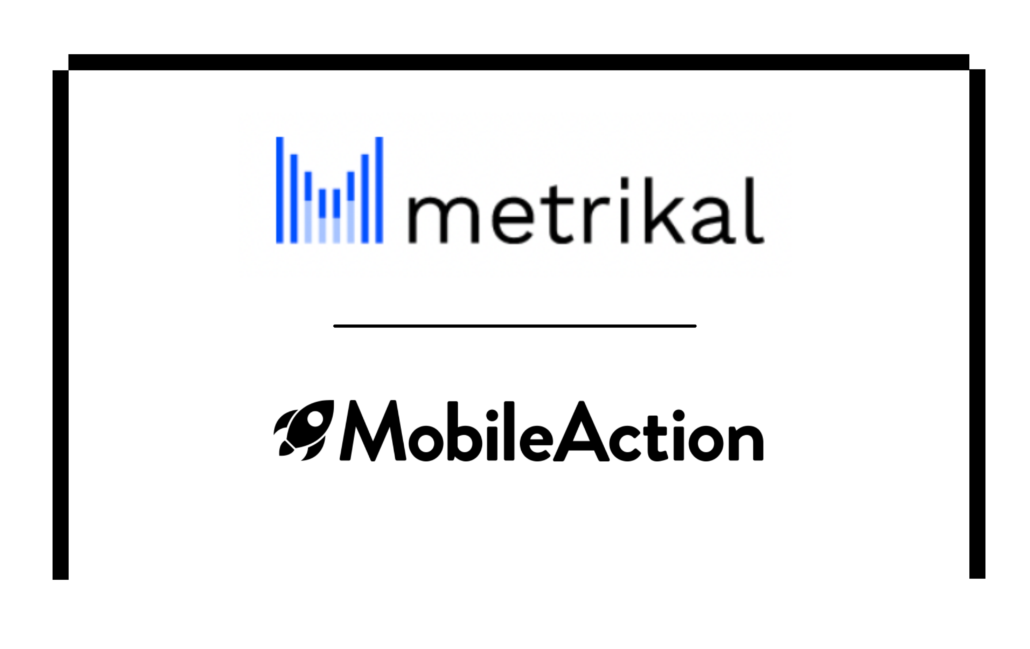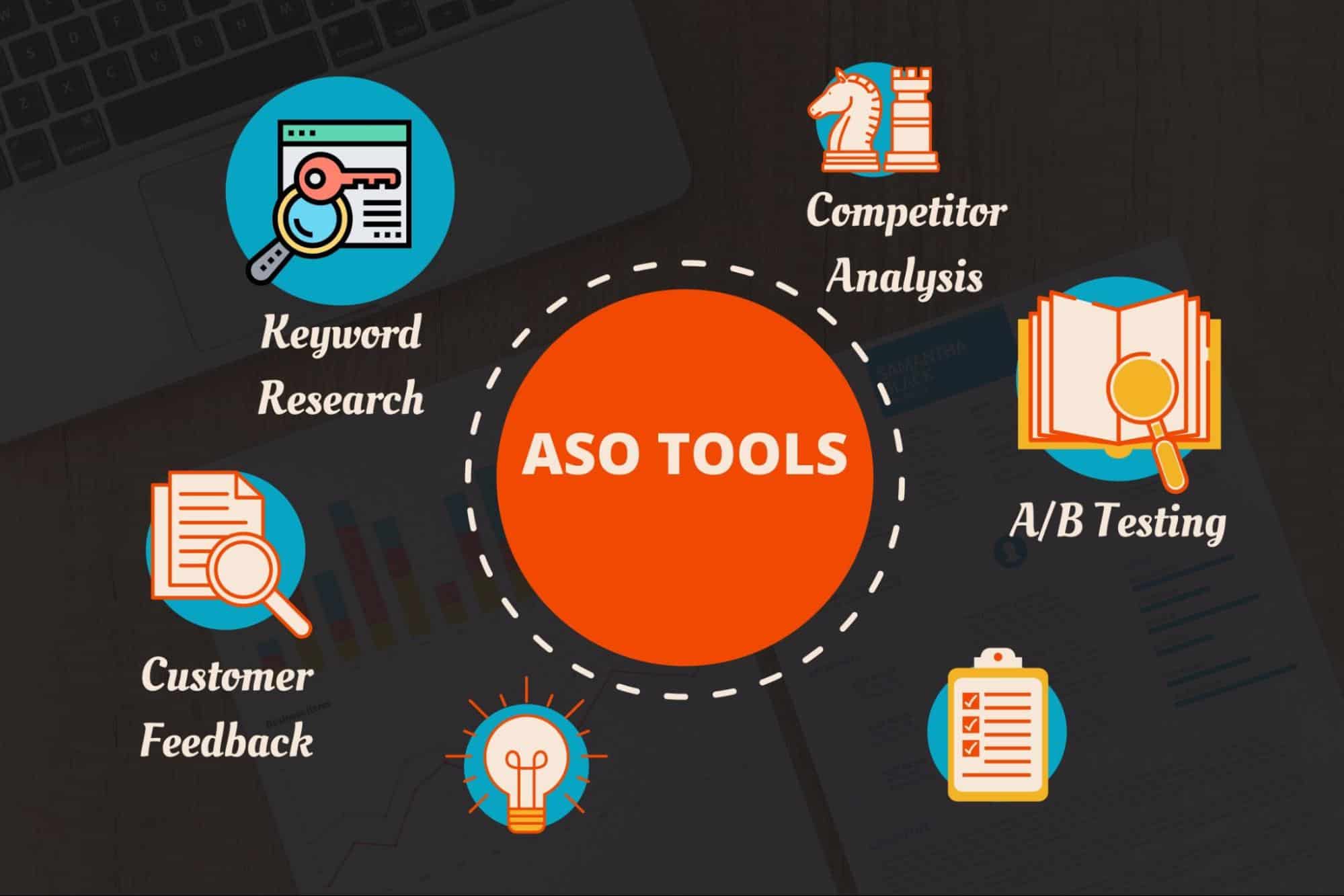
11 Effective App Store Optimization Tools for 2022
App Store Optimization (ASO) tools are vital for your marketing process and overall app success. You spend months, maybe even years, planning, developing, and building your app. But it doesn’t mean anything if users can’t find and download your app.
The primary goal of App Store Optimization is to make your app discoverable in app search engines to attract as many users as possible to download it. And the best App Store Optimization tools will help you choose the right methods to help connect your users with your product.
App Store Optimization tools incorporate well-researched keywords, analytics, sentiment analysis, and A/B tracking to find the most effective methods for increasing your app’s visibility and downloads.
With so many tools on the market, it can be difficult to know which services you can trust. This article will review some of the best App Store Optimization tools on the market — both free and paid.
What are the Benefits and Purposes of App Store Optimization?
App Store Optimization refers to the process of increasing visibility and conversion rates within app stores.
This approach involves two main factors:
- Improving your app’s index ranking in the App Store ranking
- Increasing your app’s Click-Through Rate (CTR)
Simply put, the goal of ASO is to get your app in front of users and convince them to click on your listing.
There are several tactics you can employ to boost your rankings and CTR that ASO can help you with. The most practical method is to optimize elements of your app and market page such as:
- Name
- Title
- Icon
- Screenshots
- User ratings
By adapting these factors to incorporate App Store Optimization, you’ll find your app being pushed to more prospective customers, improving the efficacy of your marketing drive and overall download figures.
Is App Store Optimization like SEO?
App Store Optimization has many similarities to Search Engine Optimization (SEO). After all, app stores such as Apple App Store or Google Play are also search engines.
Both processes involve keyword-driven results based on user input and interest. The App Store algorithm implements a complex process to interpret the search words and matches them with your app, using various factors including keywords, user ratings, download numbers, and uninstall rates.
The Apple App Store has around 2 million apps. That number constitutes incredible competition, especially among more general applications like mobile games. However, even niche or specialist apps have a challenging time growing their numbers because they draw from smaller audiences of interested users.
According to App Radar, around 70% of people use the search function to find new apps. Furthermore, 65% of app downloads happen directly after a search. This is why you see successful mobile games named similarly to gain further traction, such as “merge”, “match”, and “adventure” games.
These figures speak to the importance of using App Store Optimization to drive user acquisition (UA).
What Type of App Store Optimization Tools Exist?
There are several variables you need to target to boost app ranking and conversion rates. And to achieve the best results, many app developers employ specialist ASO tools.
But before we discuss the best ASO tools available, let’s categorize the different types of platforms on the market to understand their function and explain how they can improve your app’s visibility and App Store ranking.
Depending on your specific needs and situation, some of these tools will be more useful than others. While some tools offer an all-in-one ASO solution, most specialize in a particular function.

Keyword Research and Discovery Tools
Keyword research and discovery tools help analyze popular terms users input into search engines. By understanding what words or phrases users are interested in, you can target them with your app name and description.
Other functions of these tools are to help you track your keywords’ performance and provide keyword suggestions so you can continue to be competitive and enjoy the longevity of success for your app. And, by analyzing user search terms and your competitor’s ASO, you can identify potential opportunities or gaps in the market for future development on your app.
Search Ad Tools
Search ad optimization tools help you efficiently run advertising campaigns for your app on Apple Search Ads. Many of these tools offer features like automation or access to competitor data to help increase ROI on UA campaigns.
You can integrate many of these tools with your app attribution partners to better understand how ad spend influences user engagement, downloads, and more so you can optimize your marketing strategy.
As customer acquisition costs have risen significantly in recent years, making Search Ad tools are essential to ensuring ROI on marketing and advertising.
App Listing and Product Page Tools
App listing and product page tools help you go beyond keyword optimization. A product page contains several elements, such as icons, titles, screenshots, pricing, location, and more that help users decide whether to download your app. You can optimize each of these elements to increase conversions and CTRs.
These tools track and analyze performance data for product page elements, facilitating a great understanding of how they influence user engagement. Optimizing your app listing page is a crucial part of increasing download numbers. When users land on the page, they need to feel assured that your app is relevant to them.
A/B Testing Tools
A/B testing allows publishers to compare two or more versions of a product page (or specific on-page elements) to determine which one results in more downloads, conversions, or engagement. This technique provides the data needed to pick the optimal version of your product page to boost performance.
Although A/B testing is best performed in a live environment, some app store optimization tools will use surveys or polls to run various pre-launch experiments to help developers make their final decisions.
Sentiment Analysis and Review Tools
Sentiment analysis and review tools help you gauge how your users feel about your product. These tools look at ratings and reviews to provide actionable feedback. From here, you can refine your product or address common user issues to increase your app’s utility.
Many of these tools also facilitate replies to reviews and ratings. These interactions can make users feel valued and heard while increasing trust in your brand, making them an important part of your marketing strategy.
Finally, some of these tools can help increase your app’s 5-star ratings by recommending the best time to send rating prompts to users who are more likely to leave positive feedback.
Intelligence Tracking Tools
You can use intelligence tracking tools to get data on your competitors and various app market trends. These tools can allow you to estimate your competitor’s downloads, ad spend, revenue, and market penetration.
Competitor analysis data is an effective way to inform your marketing and development approach by identifying areas that are producing positive results or spotting existing gaps in the market.
Now that you know the types of ASO tools available and how they can help your product, let’s explore the best App Store Optimization tools available on the market.

Eleven Best App Store Optimization Tools for 2022
| TOP ASO TOOLS |
| Metrikal |
| Mobile Action |
| Apptweak |
- Metrikal
ASO results encompass a lot of information that is famously difficult to understand. App developers confronted with an endless amount of analytics and metrics, find it challenging to pinpoint the relevant data that will translate into better rankings and downloads.
Metrikal solves these issues by helping teams consolidate their KPI metrics in one place. It consolidates data from several different sources including App Store Connect and Apple Search Ads, then presents them on one easy-to-use dashboard. From here, developers can gain a deeper understanding of the key factors that affect their app’s success.
Metrikal then goes one step further by helping developers comprehend how consequent changes and campaigns affect their keyword ranking and KPIs. By understanding how organic and paid search influences performance, developers gain valuable insights into which marketing channels are working and are worth extra effort and resources. Overall, this process can improve ROI dramatically.
Metrikal was built by the mobile user acquisition aso agency ShyftUp. Initially intended for internal use by their clients, Metrikal was released to the public due to the lack of other analytics products able to capture actionable data in the same way.
Pros:
- Growth KPIs are collected in one easy-to-access place
- It helps publishers understand the relationship between organic and paid search efforts and downloads
- Easy to integrate into your website or online workspace
- Consolidates data from the main app store search systems including App Store Connect, Apple Search Ads, Google Play Developer Console, and Mobile Action
- Great visual reporting helps developers focus on the most relevant data for their needs
- Provides actionable insights and recommendations for how to improve ASO and increase the impact of Apple Search Ads
Cons:
- No free version
- There is no downloadable desktop version of Metrikal
Pricing:
- Plans start at $99 per month
- Mobile Action
Trusted by big names including Adidas, Gameloft, and eBay, Mobile Action is a highly revered App Store Optimization tool for increasing ranking and conversion rates.
Mobile Action‘s most significant feature is its comprehensive intelligence tools. Its ASO tools help with keyword tracking, analysis, competitor research to ensure your app has the upper hand. Additionally, it has excellent market intelligence features that offer daily and historical market data, like downloads and revenues for any app.
From campaign and impression data to ad publisher data and details on advertisers and creatives, Mobile Action’s Ad Intelligence tool helps developers track and visualize advertising metrics so they can refine their marketing strategies.
Additionally, Mobile Action also tracks which SDK competitors are using to build their apps. This feature can help developers keep up with — or adopt — new features and functions that keep them competitive.
Finally, Mobile Actions’ Search Ads integrates with MMP and Search Ads and automates advertising campaigns.
Pros:
- Tracks which SDKs competitors are using
- Granular ad intelligence features with excellent visualization tools
- Tracks competitors’ ads to highlight effective trends
- Search Ads automation
- Customizable dashboard
Cons:
- UI takes some time to get used to
Pricing:
- Free trial available
- Plans start from $49

- Apptweak
Apptweak is a data-driven ASO tool used by thousands of notable app developers, including Amazon, Yelp, and Adobe. Apptweak prides itself on accuracy, transparency, and ease of use.
Despite having a deceptively simple interface, they provide developers with specific and actionable insights to improve their ASO performance, making it a superb all-around ASO tool. Its intelligence tools assist with:
- ASO: They provide in-depth keyword research, provide insight into competitors’ social media strategies, and analyze global performance.
- Market: Apptweaks Market Intelligence tools help developers understand their market by providing data on the best countries and categories to target as well as the optimal times to run ads.
The platform also allows developers to automate reporting via their API and provides managed services to help grow and scale your app so you can stay ahead of the competition.
Pros:
- In-depth monitoring, keyword research, and competitor intelligence
- Sophisticated Apple Search Ad analysis, including organic keyword protection
- Comprehensive customer service helps with market research, product page design, keyword and competitor audits, and more.
- Detailed and easy-to-understand keyword and competitor analysis reports
Cons:
- The starter tier is somewhat limited compared to other platforms
- Loading time can be slow
- The sentiment analysis tool is less advanced than some competitors
Pricing:
- Starter = $69 per month
- Guru = $299 per month
- Power = $599 per month
| ASO TOOLS |
| AppFollow |
| App Radar |
| Apptentive |
| PickFu |
| Sensor Tower |
| Split Metrics |
| Storemaven |
| AsoDesk |
- AppFollow
AppFollow is one of the best App Store Optimization tools for organic users acquisition (UA). Disney, Sony, and HubSpot are all known users of this software.
AppFollow claims to:
- Boost weekly impressions by X5
- Increase organic installs by almost 500 %
- Increase app conversion rates by 11%, on average.
To achieve this, AppFollow collects critical information on keywords, user reviews, sentiment, and search result positions. It sends this data to several communication channels like email, Salesforce, Slack, Intercom, and more, where CS teams can reply directly, allowing for seamless integration for your marketing team.
The platform also supports and translates 31 languages, providing your app a much further reach. It analyzes reviews and provides notifications that allow developers to address bugs, fixes, and feature requests. Additionally, it tracks competitors’ apps and reviews.
Pros:
- Allows teams to understand how reviews and responses are affecting app review scores
- Facilitates replies via a wide range of channels like email, Salesforce, Intercom, and Slack for quick and seamless use in-house
- Facilitates integration with 30+ services
- Translates from 31 languages and covers reviews from all countries
- Centralized inbox to reply to users, with automation and auto-reply options
Cons:
- Confusing interface
- No analytics tool for organic traffic
- Limited amount of keywords even with paid plans
Pricing:
- Free
- Essential = $23 per month
- Startup = $47 per month
- Growth = $55 per month
- Advanced = $111 per month
- Enterprise = custom pricing based on keywords, replies, and login ins
- App Radar
App Radar is an excellent option for new users. It is primarily a keyword analysis and research tool that helps developers with ranking, tracking, and identifying keywords for indexing. It also allows publishers to edit their app store listings and manage reviews.
The platform tracks over 25 million keywords. By monitoring your App Store ranking in conjunction with their extensive database, App Radar helps you understand the factors that influence your rankings and conversion.
App Radar has a user-friendly interface that allows users to edit and manage their App Store listings with only a few clicks. Another strong feature is the review and rating reply function. It collects all customer reviews inside the platform and provides templates for efficient resolution.
While App Radar has strong keyword analysis capabilities, it lacks A/B testing. It can help your app grow, but it’s not the best tool for more advanced tasks that impact growth, like running different ad copy and screenshots to see which is the most effective.
Pros:
- User-friendly
- Expansive keyword analysis and research database
- The free version is a great solution for beginners
Cons:
- The free version is limited for those requiring detailed analysis
- No A/B testing
Price:
- Free version available
- Starter =$39 per month
- Advanced = $69 per month
- Expert = $129 per month

- Apptentive
Apptentive specializes in App Store Optimization for review and sentiment analysis.
Apptentive allows publishers to identify user behavior such as app purchases and views to improve client relationships and retention.
This powerful ASO captures, analyzes, and resolves issues via a centralized in-app messaging center, providing well-thought at customer care tools. Other valuable features of Apptentive are rating prompts and customer survey tools that help improve engagement.
The main benefit of Apptentive is the attention to customer feedback to drive further ASO. They suggest publishers achieve a 90%+ response rate from targeted customers and an increased 90-day retention rate, in addition to increased actionable feedback.
Apptentive performs sentiment analysis on reviews and uses its Love metric to inform publishers about their products’ user perception.
However, the app suffers from a lack of customization. Additionally, it’s less user-friendly than some other apps, and it can be confusing to figure out how to track and manage multiple apps.
Pros:
- Provides comprehensive actionable feedback
- Helpful customer support
- Precise customer targeting
- Boosts user retention rates
- No setup fees
- Good review and sentiment tools with additional customer survey feature to generate actionable product feedback
Cons:
- Lack of clarity around prices
- There is no integration to other systems available
Pricing:
- Publishers need to request a free trial to access custom prices.
- PickFu
PickFu provides publishers with a new way to decide on app names, ad copy, and titles.
While many apps provide A/B testing, PickFu helps you get customer feedback without the risk of sending valuable traffic to poorly optimized page variants. They do this by creating polls that allow users to vote on different versions of the app page. The premise is that publishers gather information on various alterations without risking potential revenue loss through live testing.
This approach carries less risk and should save developers a lot of time. For starters, publishers won’t need to go through the approval process to make app updates for live testing.
Another benefit of PickFu is the detailed customer feedback. A/B testing and customer reviews can suffer from a lack of depth, but Pick Fu’s wide variety of polls and tests help publishers understand the reasons behind their users’ actions.
While PickFu positions itself as an alternative to A/B testing, it’s best used as a tool to optimize product listing before launch. While split testing is still a vital optimization technique once the app is live, Pick Fu excels at the ideation and development stage by providing solid pre-launch feedback.
Pros:
- A reliable tool for testing app concepts
- Great for optimizing products before launch
- Alternative to A/B testing
- Allows publishers to collect more detailed feedback
Cons:
- Customer polls are less reliable than live testing
Pricing:
- Costs start at $50 per poll and rise based on customization
- Sensor Tower
Sensor Tower is one of the best App Store Optimization tools for mobile marketing intelligence. It offers insights into ad performance, competitor metrics, and app usage. The platform is used by numerous companies including Twitter, Geico, and HBO.
Sensor Tower helps publishers engage with audiences through its advanced intelligence tools. Its Store Intelligence feature uses real-time global data to contextualize metrics like Revenue Per Download and Average Revenue by Daily Active User. Usage Intelligence collects data on retention, engagement, and user demographics, while Ad Intelligence helps optimize ad spending. In addition, their language translation features help localization strategy for different markets.
Sensor Tower collects metrics such as competitor downloads, categories, and revenue. It tracks keyword difficulty and traffic numbers and shows users how many apps are competing for specific keywords to optimize searchability. It then suggests the best keywords for each project.
Pros:
- Predictive Rank helps estimate where your app will rank for specific keywords
- Good app store localization features
- Excellent intelligence tools that track ads, users, and App Store metrics
Cons:
- Lack of clarity around pricing
Pricing:
- Pricing is not publicly available.

- Split Metrics
Split Metrics provides ASO tools that focus on lowering UA costs and driving organic traffic through its use of A/B testing.
The platform promises an average conversion growth of 60% while increasing organic traffic by more than 40%. It achieves these goals by allowing developers to run a wide range of experiments that test every element of the user journey.
One of Split Metrics’ most significant advantages is allowing publishers to see how users interact with their App Store pages. This data is collected via heat maps that show how users interact with page listing elements. By understanding users’ actions, publishers can gain valuable feedback on product and feature performance.
Split Metrics allows publishers to test all the elements of their app store pages, like keywords, icons, promotional videos, descriptions, as well as providing key insights publishers can use to boost conversions.
Although Split Metrics primarily focuses on live A/B testing, it also offers pre-launch testing to allow developers early marketing insights. Finally, Split Metrics has a competitor testing tool that can help deliver excellent predictions on revenue, ad spend, and various other factors.
Pros:
- Smart A/B testing, including user interaction heat maps
- In-depth behavioral analytics, including tracking and benchmarking of over 100m+ users
- Expansive localization options
- Sophisticated competitor testing
- Provides actionable insights to boost conversions
- Facilitates pre-launch testing
- Detailed app page audits to assist with identifying growth opportunities
Cons:
- Lack of transparency on pricing
Pricing:
- Pricing is determined through consultation
- Storemaven
Storemaven is an excellent App Store Optimization tool to help increase conversion rates. The platform facilitates A/B testing for icons, descriptions, screenshots, and videos. It’s an effective tool for both paid and organic installs that helps identity which app and element variants have the most impact.
Competitor analysis is one of Storemaven’s biggest strengths. The tool provides data on competitors’ apps and highlights their ASO strategies across various languages and regions. Additionally, it helps publishers understand their competitors’ best-performing assets.
Storemaven enables publishers to measure how ASO efforts have affected their ROI. Developers can generate detailed reports that provide actionable insights to reduce testing costs and maximize conversions.
Finally, Storemaven uses a proprietary tool called Store IQ to deliver more accurate A/B testing with a smaller sample size of users through Bayesian analysis.
Pros:
- Intuitive UI
- A systematic approach to lowering CPI and increasing ROAS
- Allows for pre-launch optimization
- Store IQ uses a predictive Bayesian to increase testing accuracy
Cons:
- Limited functions and features
- Lack of clarity around pricing
Pricing:
- Publishers will need to download a free demo to access pricing options.
- AsoDesk
AsoDesk focuses on keyword analysis at the heart of its App Store Optimization strategy. It’s an all-in-one tool that provides ASO, automated customer support, data, insights, and product marketing tools.
The platform has excellent ASO real-time monitoring, keyword research, and competitor tracking features. Additionally, it provides insights into organic installs and traffic sources, helping you identify your most productive areas.
AsoDesk also helps developers manage and analyze customer reviews and ratings across 100 countries. Developers can easily reply to reviews inside the platform or take advantage of its automation capabilities.
The platform also helps publishers visualize, filter, and export app analytics data. Reports are highly customizable and allow publishers a range of options, like tabled data highlighting indicator analysis, allowing developers the freedom to use reports that fit their needs.
However, the UI of this tool lets it down slightly. It’s can be hard to navigate and feels unnecessarily cluttered, making it less intuitive than its ASO tool competitors.
Pros:
- Free daily report
- Automated customer support
- Good localization options
- Great data visualization tools, with filtering via views, countries, devices, time, and more.
Cons:
- UI is not intuitive
Pricing:
- AsoDesk plans start from $41.60/month

Conclusion
In an increasingly competitive marketplace, App Store Optimization tools are vital to keeping you compete against other app developers. From keyword research and competitor analysis to ad insights, A/B testing, and customer feedback, ASO tools offer you the blueprints to a successful app rollout that attracts customers to your product.
When choosing an App Store Optimization tool, you need to be clear on the elements you want to focus on. While some providers such as App Radar and AsoDesk excel at keyword analysis, others such as Storemaven, Apptentive, and Mobile Action focus more heavily on conversion and customer feedback. Alternatively, you can choose an all-in-one solution such as Apptweak to gain insights from all marketing areas.
No matter what your business needs, there is an App Store Optimization tool out there for you, so make sure you take advantage.
After all, if you want to be competitive and stay ahead of the curve in 2022, App Store Optimization tools will help you achieve your ambitions.
What are the benefits and purposes of App Store Optimization?
It will help your app to be pushed to more prospective customers, improve the efficacy of your marketing drive, increase visibility and conversion rates within app stores and overall download figures.
What type of App Store Optimization Tools Exist?
There are Keyword Research and Discovery Tools, Search Ad Tools, App Listing and Product Page Tools, A/B Testing Tools, Sentiment Analysis and Review Tools, Intelligence Tracking Tools.